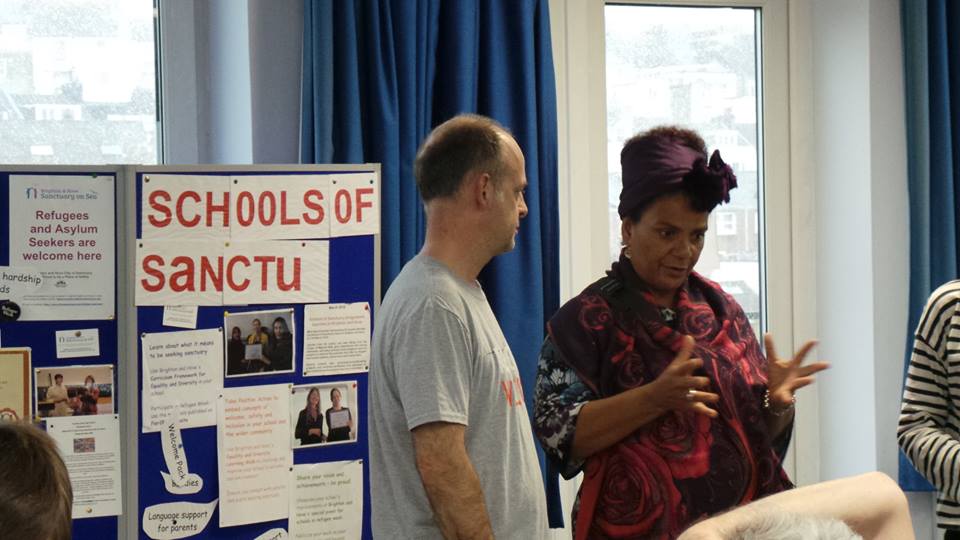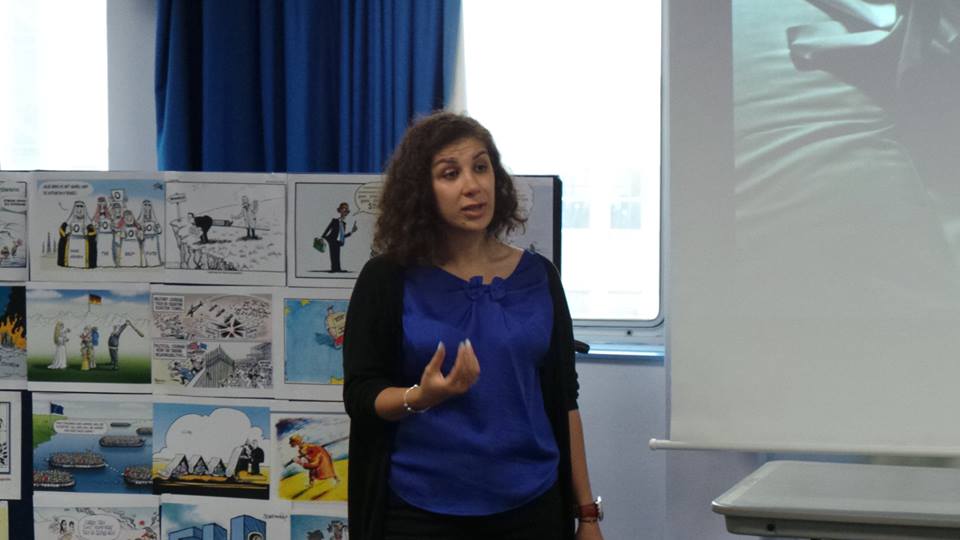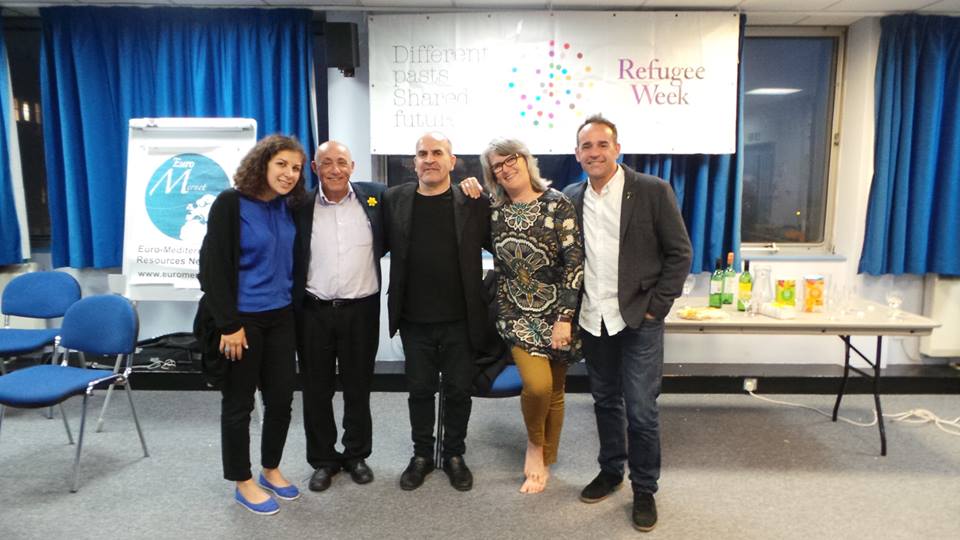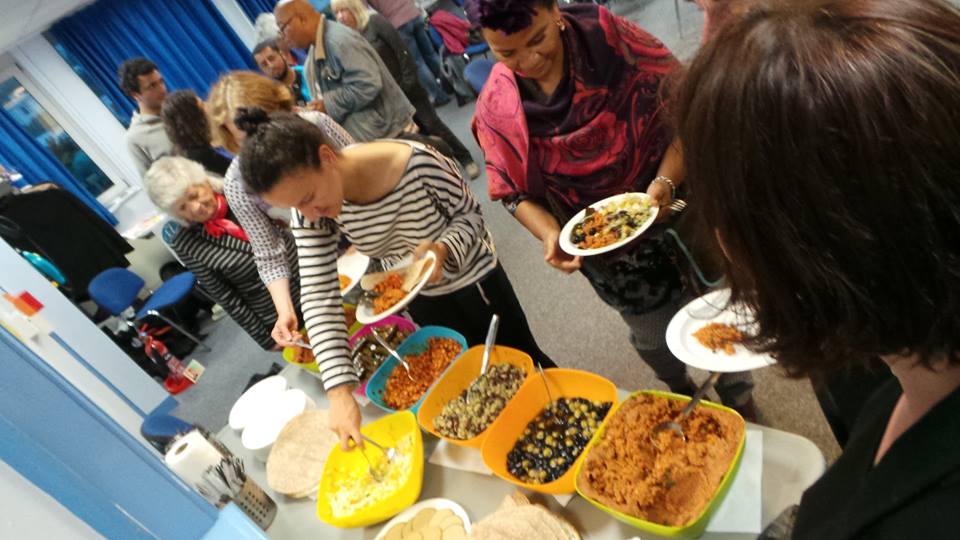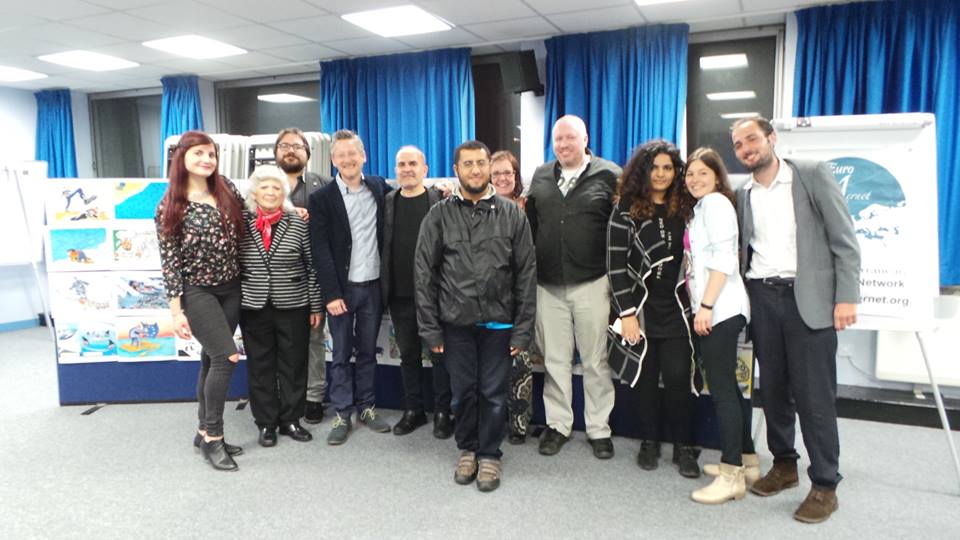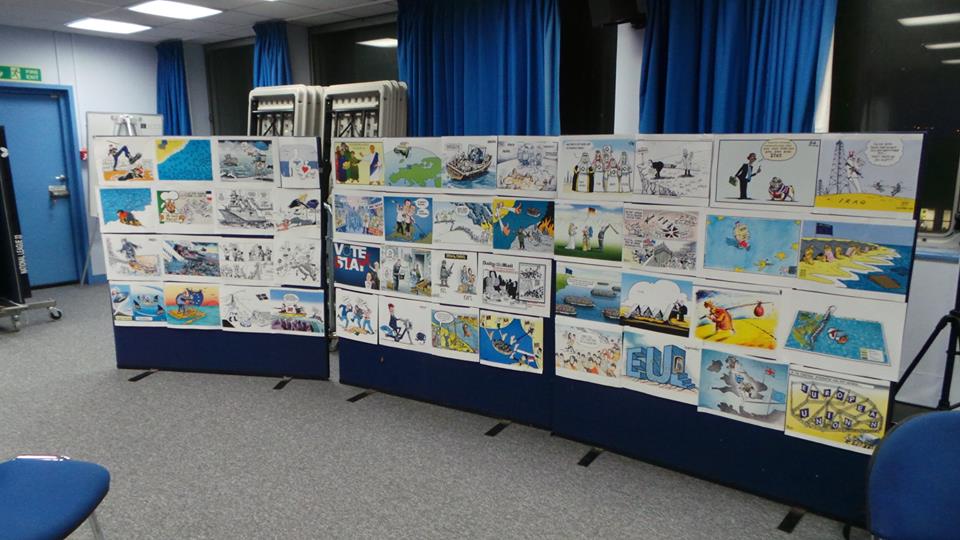A guest post by Matteo Haenen.
Euro Mediterranean Resources Network (Euromernet) organised a Refugee Week event in collaboration with the Community Base and Refugee Radio in Brighton. The event aimed to mark the end of the Refugee Week with the big question on the refugee “crisis”: what is to be done?
The evening started with greetings the guests who braved the weather to join us. After introductions about the current and future refugee support work of Euro-Mernet, Community Base and Refugee Radio, a short documentary film by London-based artist and film maker Juan DelGado, long term friend and supporter of Euro-Mernet, was the first screening of the evening. The documentary, entitled “Altered Landscapes” was a piece focusing on the rough paths refugee communities have been crossing through during their search for safety of life. This documentary was artistically so powerful that, although the refugees were not “visible in human form”, the traces and reflection of their sentiments throughout their odyssey could be felt on the screen and in the room.
Dima Mekdad, co-director of Qisetna: Talking Syria (and project partner of Juan Delgado in this initiative) told the guests the story of the project and she read out some emotionally powerful personal stories written in testimonial style by refugees during their oral history project.
Paul Hutchings, co-founder of the Brighton-based organisation Refugee Support Europe, presented a slide show and informed the guests about their support campaigns and relief efforts in variouslocations, most recently in Greece where a village for refugees has been set up and has been being maintained with additional support from other likeminded organisations and activists in many countries.
In addition to the guest speakers, the event also hosted an exhibition of photos, artwork, posters and cartoons about/by refugees and support organisations from around the world.
Screenings and presentations were followed by a panel discussion on the current refugee “crisis” and likelihood of future scenarios in the immediate aftermath of the Brexit as well as the challenges and opportunities in the long term. The panel was chaired by Prof Ivor Gaber, Professor of Journalism at the Department of Media and Film, University of Sussex . Prof Gaber has also been a member of Euro-Mernet’s International Board of Patrons. The panellists were Prof Marianne Franklin (Professor of Global Media and Politics, Goldsmiths, University of London), and Dima Mekdad and Paul Hutchings, both of whom made presentations earlier in the evening. The guests dynamically took part in the debate and the sense of solidarity with refugee communities was the shared sentiment by all, so was the concerns about the possibility of gradual rise in anti-refugee tendencies in some layers of the society.
In the final part of the event, guests found the opportunity for closer communication with each other whilst enjoying background music from around the world and a variety of homemade Mediterranean and continental food prepared by the members of Euro-Mernet.
